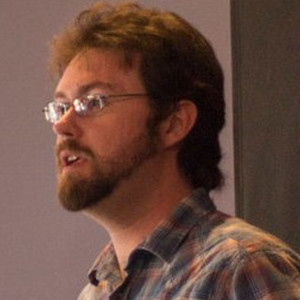The KELT project is overseen by a collaboration of scientists, including graduate students, professors, staff scientists, and postdocs. The project leaders are Joshua Pepper, Scott Gaudi, and Keivan Stassun. The team manages the two KELT telescopes, acquires and analyzes the images, searches for transit signals in the data, and organizes the follow-up effort and and confirmation of the discovered planets. The full science team is listed below.
The process of confirming the KELT planets involves both the KELT science team, and a large collaboration of observers all across the world who observe and verify the KELT transit candidates. That team is the KELT Follow-Up Network (KFUN), and is described here.

The University of Arizona

Center for Astrophysics Harvard & Smithsonian

NASA Goddard Space Flight Center

Center for Astrophysics Harvard & Smithsonian

Vanderbilt University

The Ohio State University

Center for Astrophysics Harvard & Smithsonian

Las Cumbres Observatory

South African Astronomical Observatory

University of Sao Paulo

Caltech/IPAC-NExScI

Louisiana State University

Lehigh University

Center for Astrophysics Harvard & Smithsonian

The Ohio State University

Gemini Observatory

Vanderbilt University

Penn State University

Lehigh University

Center for Astrophysics Harvard & Smithsonian
After 14 years of observations, 17 years since the project conception, 26 planets discovered, and dozens of papers, the KELT transit search is ending. This transition has been long-expected, since the NASA TESS mission has revolutionized the discovery of transiting exoplanets. We will continue observations by both KELT telescopes for as long as practical, since there is so much more science to be done outside of transit discovery. Thank you to everyone who supported the KELT project!
... Read MoreWe are honored to have received the Award of Distinction at the 25th Annual Communicator Awards from the Academy of Interactive and Visual Arts for this website, together with our web design partners at 3twenty9 Design, LLC.
... Read More(Phys.org)—An international team of astronomers reports the discovery of a new "hot Jupiter" exoplanet with a short orbital period of just three and a half days. The newly detected giant planet, designated KELT-20b, circles a rapidly rotating star known as HD 185603 (or KELT-20). The finding was presented in a paper published July 5 on arXiv.org.
... Read MoreScientists have discovered a giant ringed gas planet which is likely caused by a mysterious stellar eclipse. The planet has 50 times mass of Jupiter and it is surrounded by a ring of dust. According to researchers from the University of Warwick, this planet is hurtling around a star more than 1000 light years away from Earth.
... Read More